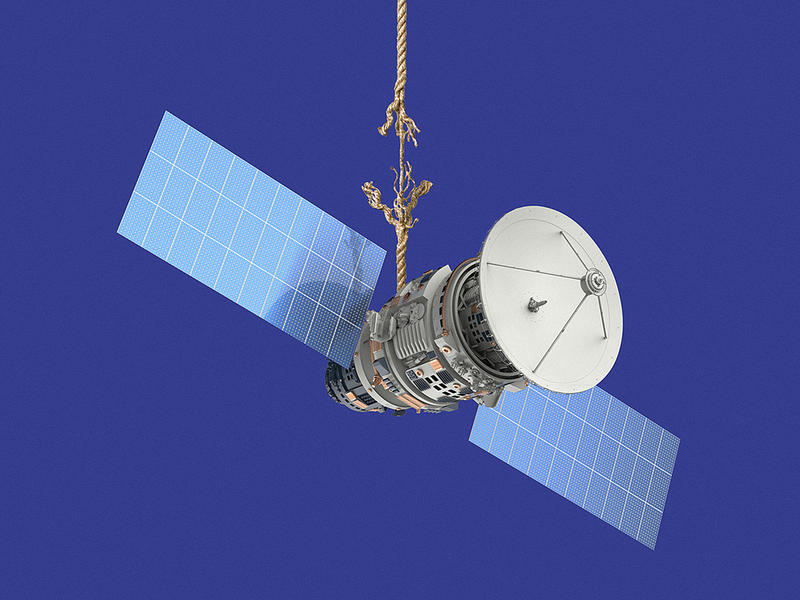When you look up into the night sky, you can see the dazzling skyscape of stars. Blinking hundreds of light years from the Earth, they sparkle and twinkle as a reminder of how small we are and how beautiful the universe really is, unless you live in a city and can't see a single star.
Many city dwellers have felt the awe inspiring feeling of finally getting the countryside and seeing stars in their full glory for the first time. Once you see them, it's hard not to miss them when you're back in the big city. It begs the question, what if there weren't any stars at all?
The lack of star visibility in the big city is a small reminder of how man-made creations can ruin the beauty of nature. That's why it's troubling to think about the impact that satellites may have on our stars. What happens when the sky is full of satellites instead of these beautiful stars?

SpaceX recently sent 60 of their large satellites into the vacuum of our space. People who love watching the sky started to take pictures of all of these satellites, but it caused anxiety among astronomers. They believe that all of these satellites will thwart science and ruin our view of space. That's because these 60 satellites are just the beginning of SpaceX's mission to send thousands of satellites into space to create a Starlink to provide internet to the entire planet. IT sounds like a good idea, but astronomers don't like it because the satellites are insanely bright.

Tylder Nordgren, an astronomer, claims, 'this has the potential to change what a natural sky looks like." SpaceX isn't the only villain in this story. Other major companies also want to send satellites into the sky, which means that we might one day be looking up at a satellite filled sky.
According to Elon Musk, founder of SpaceX, the satellites will only be seen after sunset and before sunrise, but Elon Musk hasn't always been correct in his predictions. Astronomers aren't so sure that will be the case. The current SpaceX satellites are as bright as the North Star, though SpaceX claims they will dim as they reach farther in the atmosphere. Long exposure photography is often used to take beautiful pictures of the night sky. Satellites create long streak in these pictures, completely ruining them. If that is the problem with only 60 satellites, what will it be like when there are hundreds of thousands from different companies all vying for space?

There is also the issue of radio astronomy, which uses waves. Typically the radio astronomy outposts are far away from any wave outposts, but with the omnipresent satellites, these outposts could suffer major interference.
The reality is that if the sky is filled with these satellites, we could see a sky full of satellites and not stars. People who enjoy finding constellations for pleasure or science, would be seeing nothing but satellites. Scientists are upset that these aren't problems that were addressed before launch. It's as if billionaires have the ability to completely change how we view the sky, with no regard for how anyone else might feel about it, nor the impact it may have.

Dr. Nordgren says, "The idea that one or two people somewhere in some country in some boardroom can make the decision that the constellations hereafter will suddenly be fluid, and move from night to night and hour to hour - well, I don't think that's their decision to make." Is the internet worth losing the mystery of the night sky?